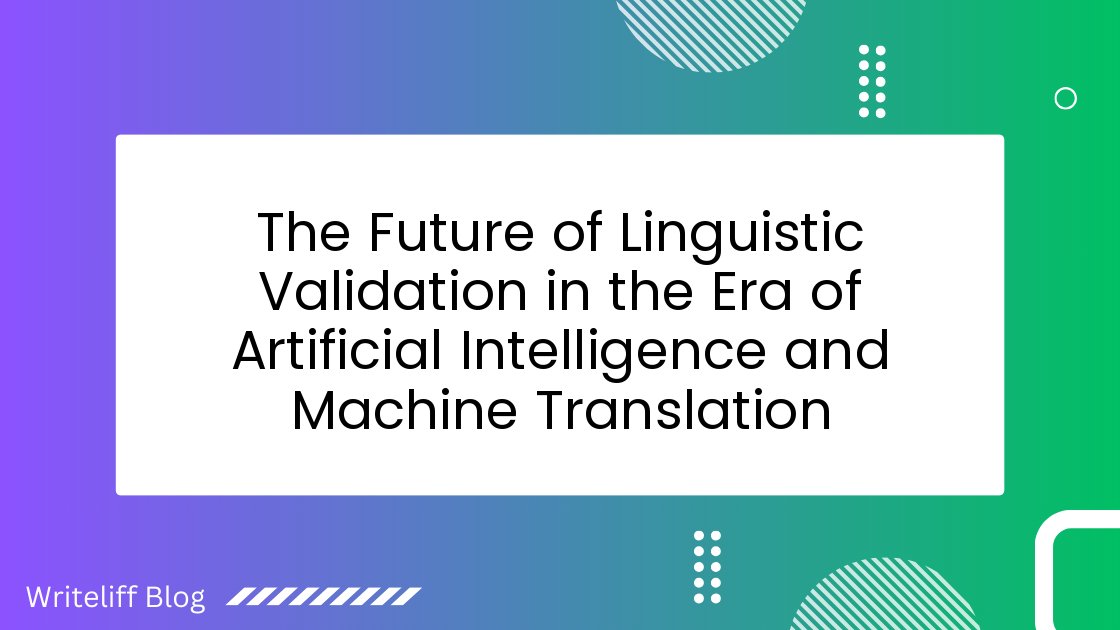The Future of Linguistic Validation in the Era of Artificial Intelligence and Machine Translation

As technology continues to advance, the field of linguistic validation is also evolving. With the rise of artificial intelligence and machine translation, many are wondering what the future holds for linguistic validation. In this blog post, we will explore the future of linguistic validation in the era of artificial intelligence and machine translation.
The Role of Artificial Intelligence in Linguistic Validation
Artificial intelligence (AI) is already playing a significant role in linguistic validation. AI-powered translation tools can help improve the accuracy and efficiency of the translation process, making it easier to comply with regulatory requirements and standards. Some of the ways AI is being used in linguistic validation include:
- Automated translation: AI-powered translation tools can automatically translate documents, reducing the need for human translators.
- Quality assurance: AI can be used to check the accuracy and quality of translations, ensuring that they meet regulatory requirements and standards.
- Terminology management: AI can help manage complex terminology and ensure consistency across translations.
The Benefits of Machine Translation for Linguistic Validation
Machine translation is another technology that is transforming the field of linguistic validation. While machine translation is not yet perfect, it offers several benefits for businesses, including:
- Speed: Machine translation can translate documents much faster than human translators.
- Cost savings: Machine translation is often less expensive than hiring human translators.
- Consistency: Machine translation can ensure consistency across translations, reducing the risk of errors and misunderstandings.
The Importance of Human Review in Linguistic Validation
While AI and machine translation are valuable tools for linguistic validation, they are not a replacement for human translators and reviewers. Human review is still critical for ensuring accuracy and cultural appropriateness. Some of the reasons why human review is important include:
- Cultural nuances: Human translators are better equipped to understand and convey cultural nuances that may be lost in machine translation.
- Context: Human translators can better understand the context of a document and ensure that the translation accurately conveys the intended meaning.
- Quality assurance: Human reviewers can ensure that translations meet regulatory requirements and standards.
The Future of Linguistic Validation
The future of linguistic validation is likely to be a combination of AI, machine translation, and human review. Some of the ways that linguistic validation may evolve in the future include:
- Improved accuracy: AI and machine translation will continue to improve, leading to more accurate translations.
- Increased efficiency: AI and machine translation will make the translation process faster and more efficient.
- Greater accessibility: AI and machine translation will make it easier for businesses to comply with regulatory requirements and standards in different countries.
Conclusion
The future of linguistic validation is exciting, with AI and machine translation offering new opportunities for businesses to comply with regulatory requirements and standards. However, it is important to remember that human review is still critical for ensuring accuracy and cultural appropriateness. By working with a professional translation service that combines the best of AI, machine translation, and human review, businesses can benefit from improved accuracy, increased efficiency, and greater accessibility.